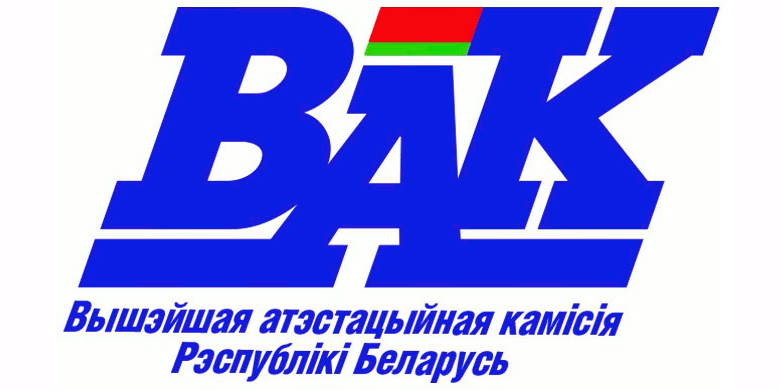Role, Place, Importance of the Intermediate Language in Blended Learning of Russian as Foreign Language
Keywords:
blended learning, intermediate language, comparative analysis, teaching Russian as a foreign languageAbstract
This article is devoted to the issues of teaching foreign languages, in particular Russian as a foreign language. One of the main problems of the methodology as a science is the search for optimal teaching methods and technologies. In teaching Russian as a foreign language among scientists there is no single and unambiguous opinion on the method that can be used in the classroom for the most effective assimilation of the material presented. However many methodologists and researchers demonstrate in their work the appropriateness of using the native language of students or the intermediary language, especially in blended or distance learning, when students have to master a significant portion of the material themselves. In the presented article the author relying on the opinion of domestic and foreign researchers analyzes the role, place and importance of the intermediary language in the process of teaching Russian as a foreign language, demonstrating the main situations in which its use is appropriate. The article discusses how and to what extent the intermediary language can be used at different stages of training and in teaching different aspects of the language.
References
2. Вайнрайх, У. Одноязычие и многоязычие. Зарубежная лингвистика / У. Вайнрайх. – М., 1999. – С. 7- 42.
3. Вайнрайх, У. Языковые контакты. Состояние и проблемы исследования / У. Вайнрайх. – Б., 2000. – 56 с.
4. Гак, В.Г. Сопоставительная лексикология: на материале французского и русского языков / В.Г. Гак. – М.: Международные отношения, 1977. – 264 с.
5. Ладо, Р. Лингвистика поверх границ культур / Р. Ладо // Новое в зарубежной лингвистике – М.: Прогресс, 1989. – С. 32-62.
6. Янченко, В.Д. История методики преподавания русского языка в биографических очерках / В.Д. Янченко, А.Д. Дейкина. – М. : МПГУ, 2017. – 420 с.
7. Atkinson, D. The mother tongue in the classroom: a neglected resource? ELT Journal, Oxford, 41:4, 1987.
8. Duff, A. Translation. – Oxford: Oxford University Press, 1996.
9. Harbord, J.1999. “The use mother tongue in the classroom”. ELT Journal, 46(4): 402-423.
10. Mouhanna, M. 2009, Re-Examining the Role of L1 in the EFL Classroom, UGRU Journal Volume 8, Spring 2009, viewed 10 Mar 2011, http://www.ugr.uaeu.ac.ae/acads/ugrujournal/docs/REL1.pdf.
11. Simsek, M. R. 2010, The effects of L1 use in the teaching of L2 grammar concepts on the students’ achievement Journal of Theory and Practice in Education 2010, 6 (2):142-169, viewed 29 Mar 2011 http://eu.comu.edu.tr/index/6/2/mrsimsek.pdf
References
1. Vagner V.N. Metodika prepodavaniya russkogo yazyka anglogovoryashchim i frankogovoryashchim na osnove mezh"yazykovogo sopostavitel'nogo analiza: Fonetika. Grafika. Slovoobrazovaniye. Struktury predlozheniy, poryadok slov. Chasti rechi: Ucheb. posobiye dlya stud. vyssh. ucheb. zavedeniy, obuch., po spets. «Filologiya». [Methods of teaching the Russian language in English and French-speaking on the basis of cross-language comparative analysis: Phonetics. Graphic arts. Word formation. Sentence structures, word order. Parts of speech: Textbook for students of higher educ. institutions, training. special. on "Philology"]. M.: VLADOS, 2001, 384 p. (In Russian)
2. Vaynraykh U. Odnoyazychiye i mnogoyazychiyeю. Zarubezhnaya lingvistika [Monolingualism and multilingualism Foreign Linguistics]. M., 1999, pp. 7-42. (In Russian)
3. Vaynraykh U. Yazykovyye kontakty. Sostoyaniye i problemy issledovaniya. [Languages in contact. State and problems of research]. B., 2000, 56 p. (In Russian)
4. Gak V.G. Sopostavitel'naya leksikologiya: na materiale frantsuzskogo i russkogo yazykov [Comparative lexicology: on the material of French and Russian languages]. M.: Mezhdunarodnyye otnosheniya, 1977, 264 p. (In Russian)
5. Lado R. Lingvistika poverkh granits kul'tur [Linguistics over the borders of cultures] Novoye v zarubezhnoy lingvistike [New in foreign linguistics]. M.: Progress, 1989, pp. 32-62 (In Russian)
6. Yanchenko V.D., Deykina A.D. Istoriya metodiki prepodavaniya russkogo yazyka v biograficheskikh ocherkakh [History of the methodology of teaching the Russian language in biographical essays]. M.: MPGU, 2017, 420 p. (In Russian)
7. Atkinson D. The mother tongue in the classroom: a neglected resource? ELT Journal, Oxford, 41:4, 1987. (In English)
8. Duff A. Translation. - Oxford: Oxford University Press, 1996. (In English)
9. Harbord J.1999. “The use mother tongue in the classroom”. ELT Journal, 46(4): 402-423. (In English)
10. Mouhanna M. 2009, Re-Examining the Role of L1 in the EFL Classroom, UGRU Journal Volume 8, Spring 2009, viewed 10 Mar 2011, http://www.ugr.uaeu.ac.ae/acads/ugrujournal/docs/REL1.pdf. (In English)
11. Simsek M. R. 2010, The effects of L1 use in the teaching of L2 grammar concepts on the students’ achievement Journal of Theory and Practice in Education 2010, 6 (2):142-169, viewed 29 Mar 2011 http://eu.comu.edu.tr/index/6/2/mrsimsek.pdf(In English)













